Cannes Diary #3: A stubborn wife, a great grandpa and... a donkey?
 Friday, May 20, 2022 at 3:01PM
Friday, May 20, 2022 at 3:01PM by Elisa Giudici
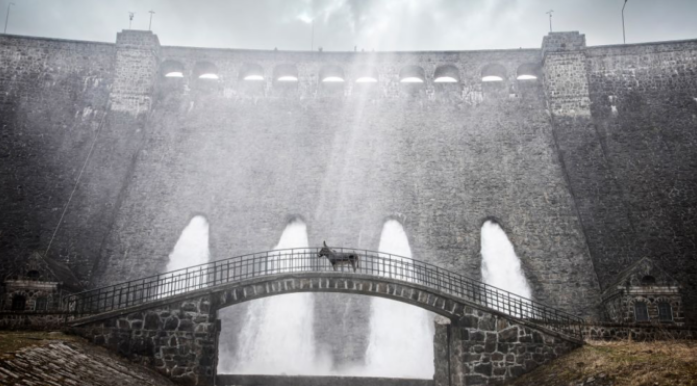
While I was on screening duty, Hollywood glamour was on shift-change with Tom Cruise out and Julia Roberts in. Roberts was here to hand the Chopard Awards to new promises of world cinema (Jack Lowden and Sheila Atim) and to enjoy a marvelous party, as I've heard from friends that witnessed it firsthand. But as for the movies, I am happy to report that on the second day of the competition (the third since opening nightl) we already have a soon-to-be infamous scene with the immense Isabelle Huppert as a momentary protagonist. Some weird festival stuff is coming, brace yourself...
Tchaikovsky's Wife by Kirill Serenbrennikov (Russia)
COMPETITION FILM
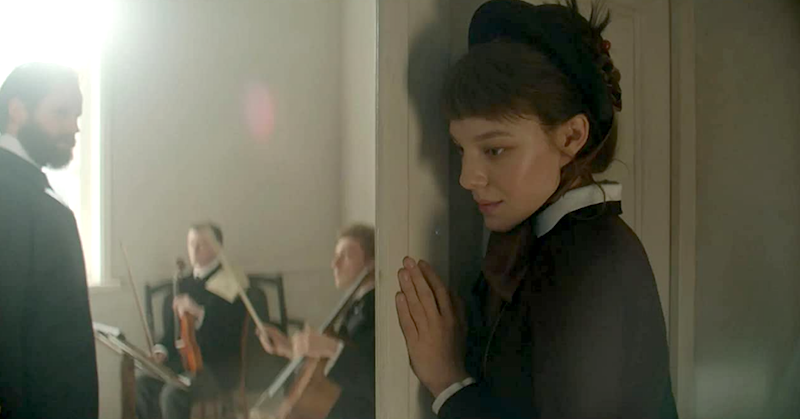
Serebrennikov’s fans are disappointed by his take on Antonina Miliukova (Alyona Mikhailova), the wife of the famous Russian classical composer Pyotr Tchaikovsky (Odin Lund Biron), but I quite like this one. I certainly prefer it to his previous film Petrov’s Flu (last year at Cannes) even if I still suspect I was simply too tired to keep up with that three hour long fever dream.
“Feverish” is an adjective that was invented to eventually describe Serebrennikov’s way of portraying characters on film. Being a costume drama and a European co-production, though, his particular restlessness is somewhat toned down this time around. That makes Tchaikovsky's Wife almost a Serebrennikov neophiles experience.
At two and half hours it's still too long to enjoy, but testing the audience’s patience is arguably the point. The titular character is the absolute center of a story of amour fou and delirium. In Serebrennikov’s eyes the dividing lines between love, obsession, pride, and wounded hearts, fuel a borderline inability to see truth. The lines are very blurry.
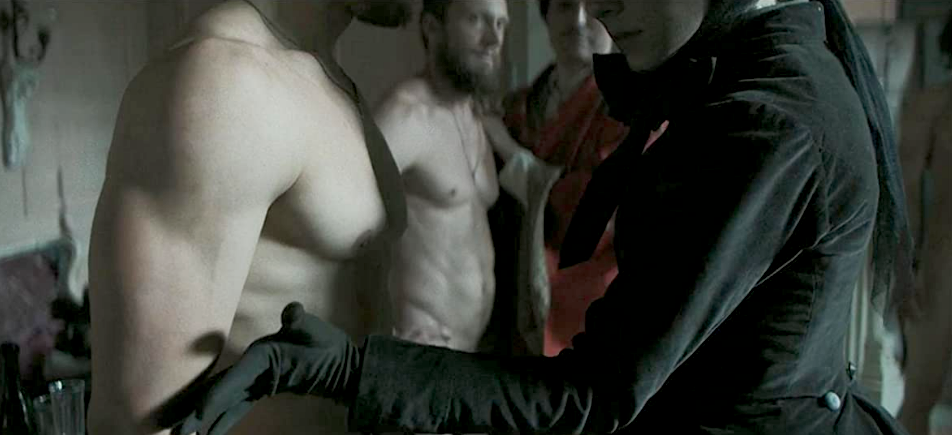
Antonina’s life as a regular wife at the side of her Pyotr lasts only a couple of weeks. He is not so secretly attracted to men (the film is also eligible for the Queer Palm) but she seems unable to believe he is not interested in her. Modern viewers might struggle but a time and society with this much homophobia and repression, it's possible for a young woman to never fully grasp the concept of homosexuality itself.) Tchaikovsky consents to marry her “like a brother”, to stop the gossip. Her first and only sexual advance ends with him trying to choke her, and the house burning down to put some space between them.
From this point on the audiences is unsure. Are any of the scenes involving the composer real or fictions, hallucionations if you will from his wife's mind? She'll do anything to avoid admitting he never loved her. The focus is all on Antonina: Pyotr and his music are marginal presences in the life of this woman in love with the idea of being the lover of a musical genius even if that love destroys both of them. I particularly liked how the director portrays a “young, healthy woman with appetites”, being unfaithful to her husband while proclaiming she would never do such a thing. Serebrennikov is the right director to illustrate why this contradiction makes perfect sense in Antonina's head. Leading actress Alyona Mikhaylova gives new meaning to the word “intensity” here.
Armageddon Time by James Gray (US)
COMPETITION FILM
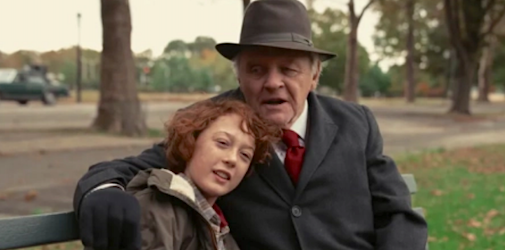
Comparing James Gray’s semi-autobiographical tale of his childhood in ’80s Queens to Kenneth Branagh’s Belfast is unavoidable, given their close proximity, yet its only part of a bigger picture. The autofiction trend is spreading amongst auteurs. Sorrentino, Almodóvar, Cuarón, and Gray are four examples from just the last five years, each with very intimate movies premiering at European festivals.
Gray’s reinvention of his childhood years in a Jewish family in Queens is a sort of explanation of who he is and why he ended up directing movies like Ad Astra. The movie itself is likable, and heartwarming, with Anthony Hopkins portraying a cool grandpa who is bound to be compared to Ciarán Hinds in Belfast. Adorable Michael Banks Repeta plays the 11 year old main character "Paul" who faces the difficult cultural heritage of a family who faced the Holocaust but now has managed to live its fair share of the American dream. Paul is a daydreamer and his lack of awareness about both the social conditions of his family and his black friend Johnny (Jaylin Webb) is at the heart of a movie. It's a far more nuanced portrayal of the family of an artist than Branagh's Belfast, yet it's still not totally convincing in facing the issues it raises about the American public school system, racism, and Reaganism in the 1980s. The exploration of racism and the peripheral presence of the Trump family (Jessica Chastain plays Maryanne Trump) both feel too calculated and an easy way out for Gray, only half-willing to embrace the real contradictions inside his family and his upbringing.
EO by Jerzy Skolimowski (Poland)
COMPETITION FILM
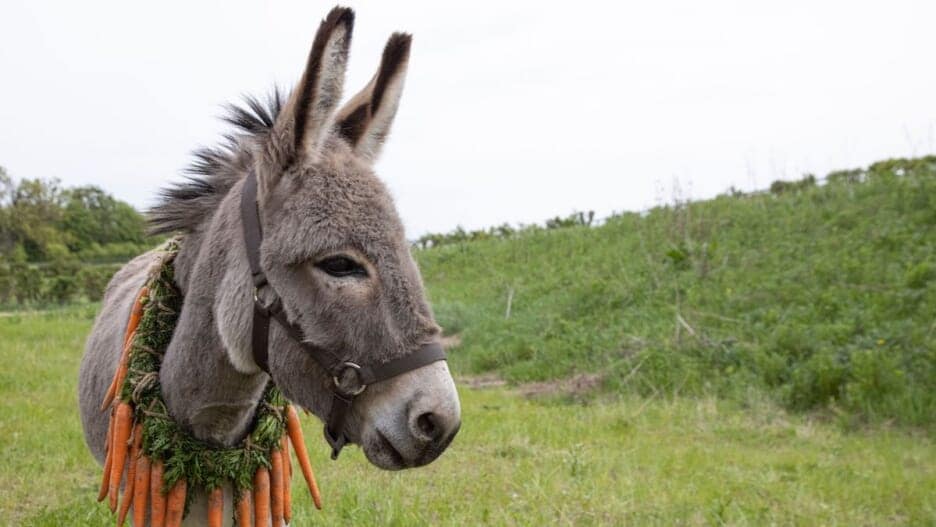
Parted from his beloved human friend human with whom he lived and worked in a circus, a Sardinian grey donkey named "EO" faces a long, dangerous journey. As he travels Europe he meets a wide range of humans from psycophaths, to good hearts, from the indifferent to the curious. psychopaths, indifferent or curious people, good-hearted persons, until the inevitable conclusion of his path.
EO wants to tell its tale in the most human way, despite using an animal as its protagonists. For example Eo sheds a tear when he is parted from his friend. The point of view is all EO's. It's impossible not to think about Andrea Arnold’s Cow, considering Jerzy Skolimowski faced here the same dilemma: how do you convey emotion using an animal as protagonist when they can't talk and it's impossible to predict their "acting". It’s like seeing Robert Bresson’s Au Hasard Balthazar (a clear inspiration for Skolimowski) updated with a contemporary sensibility.
The movie is a true experience and a journey, and not unlike EO's, has its highs and lows. The latter comes courtesy of scene I welcome as deliciously scult in which Isabelle Huppert plays the Countess. She speaks a mix of Italian and French and her sole purpose is to insert a “forbidden human love" into the movie. After EO and Cow, I am still only half-convinced about the efforts we've seen at portraying an animals' inner emotions through a human lens, but it feels like these experiments are paving the way for a future game-changer.
more tomorrow
Day 1 Opening Night, Coupez!
Day 2 Tom Cruise, The Eight Mountains, Scarlet
Day 3 Armageddon Time, EO, Tchaivosky's Wife
Day 4 Corsage, Brother and Sister, When You Finish Saving the World
Day 5 3000 Years of Longing, RMN, Triangle of Sadness, Boy From Heaven
Day 6 Holy Spider, Men, Smoking Makes You Cough, Marcel!
Day 7 Decision to Leave, Crimes of the Future, Forever Young
Day 8 Silent Twins, Tori and Lokita, Nostalgia



Reader Comments (2)
I heard today's slate of films were really good as I really want to see both EO and Armageddon Time. I heard Queen Anne fucking delivered in the latter.
Armageddon Time is an example of a film that became a lot more intriguing with pandemic recasting. Jeremy Strong, Anthony Hopkins, and Jessica Chastain interest me more than Robert de Niro, Oscar Isaac, and Cate Blanchett - I feel like there's a lot more potential for surprise.